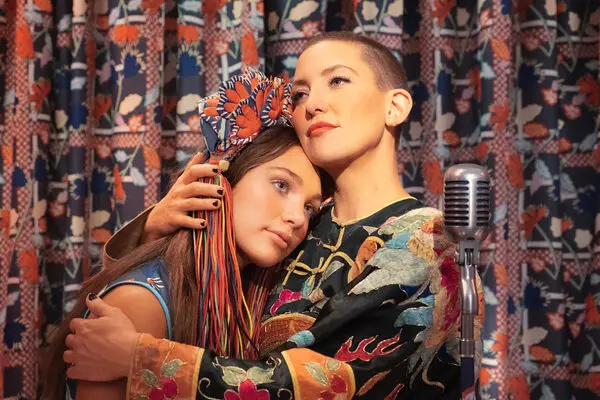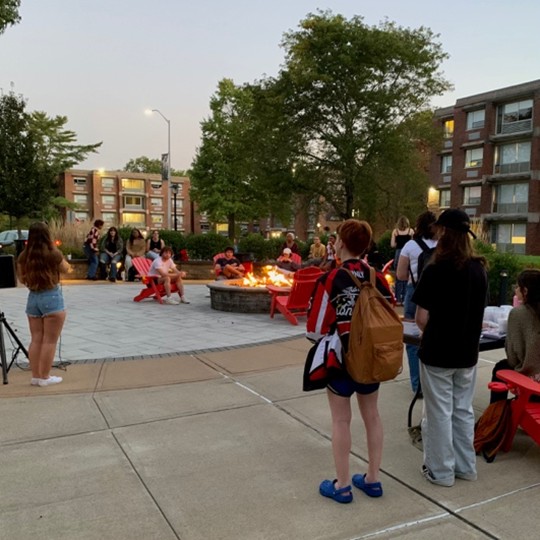Golden Globes Monologue And Nominations Reignite Backlash Against “Music” Movie

Photo via The New York Times
March 3, 2021
It has been nearly two months since the Sia-directed and co-written movie “Music” was first released to the public, but the controversy surrounding the movie has not subsided. The debate about the movie’s depiction of autism only intensified following The Golden Globe Awards ceremony on February 28th, 2021. Golden Globe co-hosts Tina Fey, and Amy Poehler had no problem lampooning the dually nominated movie. “Sia’s controversial film “Music” is nominated for best international floparooni” joked Fey during their monologue. “I don’t want to get into it guys but it’s real problematic and Twitter is saying it’s the most offensive casting since Kate Hudson was the Weight Watcher’s spokesperson.”
Despite being universally panned by critics (with a Rotten Tomatoes critic score of only 9%), the movie was nominated for Best Motion Picture – Musical or Comedy. Lead actress Kate Hudson was nominated for Best Actress – Motion Picture Comedy or Musical, ultimately losing in both categories. Internationally, the movie only made $618,799 despite having a budget of $16 million; the low viewership can be accredited to an online campaign made up of people in the autism community as well as autism advocates, who wanted the movie boycotted due to its offensive portrayal of people with autism.
Before the movie was even released, Sia gained criticism for partnering up with Autism Speaks. This organization has gained prominence as an autism advocacy organization even though they view autism as a disease that needs to be eradicated, rather than a difference that gives those diagnosed certain advantages and certain disadvantages. Many neurodivergent people say that Autism Speaks does more to propagandize the negative side of autism instead of advocating for those with autism so that they can have the proper accommodations in life if they so choose to have them. Hence, why Autism Speaks as a research partner was the first red flag for many.
The titular Music character and the neurotypical actor who played her, Maddie Ziegler, were immediately chastised due to the many negative stereotypes of autism that she exhibited. A Change.org petition created to try and have the Golden Globe nominations rescinded said of Maddie Ziegler’s acting, “If we look at Ziegler’s portrayal, the answer is by stereotypically mimicking autistic people the exact same way autistic people have been bullied and mocked their entire lives.” While many do not entirely blame Ziegler for being a part of the project since she was 14 years old at the time of filming, her casting was criticized, as many believed an autistic person should have played the role.
While there are many autistic actors and actresses available to play roles in big-budget movies (and ways for movie studios to accommodate them), autism is seldom actually portrayed by people on the spectrum. It is instead shown through the eyes of neurodivergent people. Twitter user and actress @HelenAngel questioned Sia’s motives, saying, “Several autistic actors, myself included, responded to these tweets. We all said we could have acted in it on short notice. These excuses are just that- excuses. The fact of the matter is zero effort was made to include anyone who is actually autistic. #NothingAboutUsWithoutUs” to which Sia responded, “Maybe you’re just a bad actor,” showing an inability to read the room.
Ultimately, the film’s most harmful parts are the scenes where Music has a meltdown and is being physically restrained by the other characters. Doing that can, will, and has resulted in the deaths of people with autism; recent incidents, such as the death of autistic teen Eric Parsa at the hands of a Louisiana Sherriff, prove just that. Many autism advocacy groups, such as the Asperger/Autism Network, agree that physical restraint is the worst option. Talking slowly in a low and reassuring voice is the best way to calm a person with a meltdown.
It seems as if the controversy surrounding the movie will not slow down any time soon. Hopefully, this controversy will result in more neurodivergent people telling their own stories to wider audiences.









